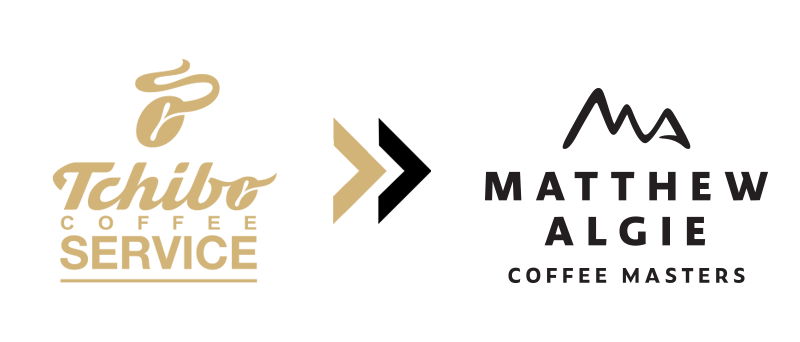Six ways café operators can be more sustainable.
June 2nd, 2023 | Coffee Industry Insights & Trends
The Global Sustainability Report, sponsored by Matthew Algie, was launched this month and outlines the major issues that need to be addressed on environmental sustainability within coffee businesses.
The report draws upon 40 in-depth interviews and over 170 surveys with key industry personnel across the global coffee shop industry and coffee supply chain, with research taking place between 8 September 2022 and 23 February 2023.
We’ve delved into the findings and summarised six key areas below, highlighting what you can do to be more sustainable.
Consumers want to make sustainable choices
According to Deloitte, 40% of UK adults choose brands with environmentally sustainable practices or values to adopt more sustainable lifestyles. So, it’s time to select the brands you offer with care and consideration.
In the UK, 66% of consumers surveyed believe ethical and sustainable practices should be prominent in coffee shop marketing, with banning plastic straws, ensuring proper recycling and reusable cup schemes cited as the most effective sustainability initiatives.
Despite the plethora of in-house sustainability initiatives in the coffee industry, just 26% of industry leaders surveyed in this report believe coffee shops successfully convey their sustainability messaging to consumers. This indicates that many of the complex sustainability initiatives being implemented across the coffee supply chain – from farming to transportation and roasting – are being lost in translation when communicated to end consumers in coffee shops and retail environments.
Smaller coffee businesses are more likely to align themselves with third-party accredited certifications, such as Fairtrade, Rainforest Alliance and B Corp, or choose wholesale suppliers or brands accredited by Fairtrade or The Carbon Trust – seals of approval more readily recognised and respected by consumers.
 What can you do?
What can you do?
If you are a Matthew Algie customer, you have invested in sustainable coffee, so be sure to shout about it. For every coffee roasted at Matthew Algie, we can supply the story of sustainability, imagery, digital assets and point of sale for your business to use in your marketing. All our digital assets are available on our Trello board.
The equipment you choose has a huge impact
Four academic studies (Salinas 2008, Humbert 2009, Chayer 2015 and Killian 2013) attribute preparation in hospitality venues as accounting for up to 50% of coffee’s total carbon footprint, meaning that tackling energy use from store operations and supply chains is essential for reducing the industry’s carbon footprint.
In coffee shops, upgrading inefficient equipment, such as espresso machines, water boilers, and ovens, can reduce energy overheads and carbon emissions (Scope 1 and 2).
According to research by UK-based United Baristas, an infrequently used espresso machine using 5,000 kWh each year consumes more electricity than the average UK home. A moderately busy espresso machine using 10,000 kWh per annum is responsible for carbon emissions of 2.92 tons – that’s more than a return flight from London to Costa Rica!
However, with espresso machines typically having at least a ten-year lifespan, operators should conduct a lifecycle assessment of existing equipment to maximise use before replacement – a brand new energy-efficient espresso machine will still have a significant manufacturing carbon footprint that could take years of operation to break even.
Installing LED lighting, reducing air conditioning usage and improving insulation can all lead to reduced energy use, costs and carbon footprint. According to the International Energy Agency (IEA), turning down thermostats by one degree can lead to an annual 7% reduction in energy costs, a significant saving given the current record high energy prices.
 What can you do?
What can you do?
Our team are here to ensure you have the right equipment for your business, so get in touch. A new, groundbreaking innovative technology in the coffee industry is coming soon! The new Heylo espresso machine works on boilerless convection heating and saves up to 90% on energy use.
Sign up for our mailing list to be the first to hear when the product launches.
Choose a sustainable coffee supplier
According to research by the Royal Botanic Gardens, Kew, up to 50% of the land used for growing coffee worldwide could become unsuitable for its cultivation by 2050 due to rising temperatures and extreme weather. Meanwhile, 60% of wild coffee species face extinction by the end of the century.
This, along with increasing hardship for farmers caused by extreme weather events, such as drought, flooding, pests and diseases, and compounded by a stubbornly low C-price, is causing an exodus of farmers and younger workers, many of whom are opting to produce other crops or move into cities to find work.
 What can you do?
What can you do?
This means, more than ever, we must strive to protect the environment and the coffee farmers. Choosing a supplier committed to taking net zero seriously is important – read our sustainability report and Net Zero 2040 Plan to learn more about what we’re doing.
The problem with disposable cups continues
According to reusable cup manufacturer, Huskee, over 20 million trees are cut down annually to manufacture disposable coffee cups.
A study in 2020 by quality assurance provider Intertek found that when taking into account growing trees, paper-making, plastic production, transport, cup and sleeve manufacture, delivery, and waste processing, a typical disposable coffee cup requires 0.58 litres of water to produce and has a carbon footprint equivalent to up to 60.9 grams of CO2e2 when made from virgin paper.
Furthermore, disposable coffee cups are difficult to recycle due to the 5% plastic content in the lining that keeps them watertight. The challenge of collecting coffee cups and separating this lining for recycling means that as many as 99% are never recycled.
The financial implications of an operator banning single-use cups outright is a problem. Boston Tea Party, which became the first UK coffee shop to ban disposable coffee cups in 2018, reported a £250,000 fall in takeaway sales following implementation.
Only government bans or significant surcharges on disposable cups will likely break the cycle of use and disposal among consumers. When the UK government introduced a mandatory £0.05p charge on plastic bags in 2015, major retailers saw their use fall by a staggering 97%.
What can you do?
Get ahead of the curve! Encouraging customers to bring their own reusable cups would reduce the need for disposable cups and have less environmental impact. Are you actively encouraging customers to bring or buy a reusable cup? Are you incentivising this through menu pricing or promoting reusables in your business?
Don’t overlook your coffee waste
Around 1% of coffee bean mass is used in the brewing process, with the remaining 99% as waste.
With most industry leaders surveyed in this report giving their spent grounds to a waste management company, a large proportion is likely discarded as a landfill, where it will emit methane – a greenhouse gas 28 times more potent than carbon dioxide!
Like many waste materials, coffee can be recycled into new products or composted and used as fertiliser.
What can you do?
Coffee grounds can be used in many different ways. We’re seeing many coffee shops bag up coffee grounds for customers to take away for spreading in the garden – not only is it a great natural fertiliser, but it’s also great for keeping the slugs at bay!
Glasgow Chamber of Commerce has recently partnered with Glasgow Life, Zero Waste Scotland and the 2023 UCI Cycling Word Championship to bring a new Grounds for Recycling initiative. Grounds for Recycling is tackling food waste across the city, turning spent coffee grounds from cafes and coffee roasters into compost.
Some of our furniture suppliers collect coffee waste to use alongside reclaimed plastics. Then, Glasgow-based research company, Revive Eco, are pioneering a process that turns used coffee grounds into a palm oil alternative – pretty cool!
There are many innovative ways to use coffee grounds, so there should be no need to put them in the waste bin!
The case for plant-based milk grows
84% of operators offer an alternative to dairy milk and with good reason!
A 2018 study by Herrero, M., & Kastner, T. found that dairy accounts for around one quarter, sometimes as much as a third, of the carbon footprint from a typical European diet.
According to a major 2018 study by Poore and Nemecek, cow’s milk has significantly higher environmental impacts than plant-based alternatives – oat, soy, almond or rice – across all metrics.
200ml of cow’s milk generates around three times more greenhouse gas emissions; uses around ten times as much land; between two and twenty times as much freshwater, and creates much higher levels of eutrophication (excessive concentration of nutrients in bodies of water) than the same volume of any plant-based milk.
Introducing dairy alternatives to menus can be a powerful way for operators to reduce their beverage menu’s overall greenhouse gas footprint. Poore and Nemecek found that one litre of cow’s milk results in 3kg carbon footprint. However, oat and almond alternatives have just 0.9kg and 0.7kg footprints, respectively.
Oat milk has emerged as the dairy-free coffee pairing of choice! US boutique café chains Blue Bottle Coffee and Stumptown Coffee Roasters now serve oat milk as the default beverage pairing across their 100+ and nine US stores.
What can you do?
It’s simple, ensure you have a dairy-free alternative on your menu. With oat milk the favourite, start with that, but with others to choose from like soya, almond and coconut, you may find customers returning for more!
Check out our full range of Espresso Warehouse barista-grade plant-based drinks here.
